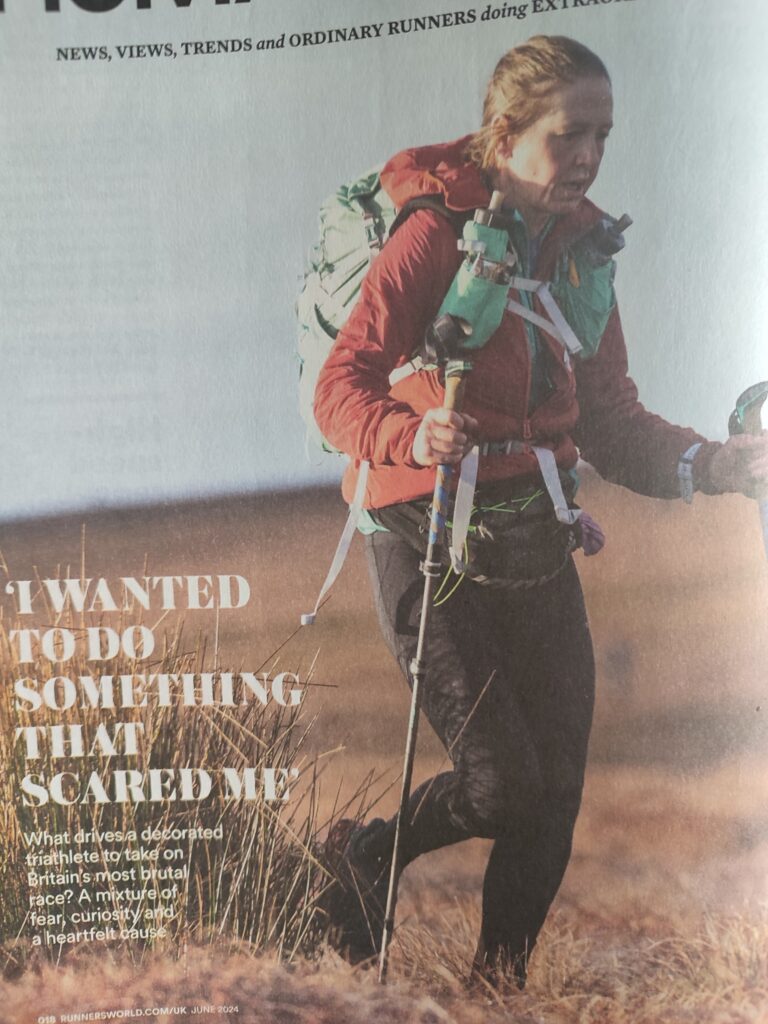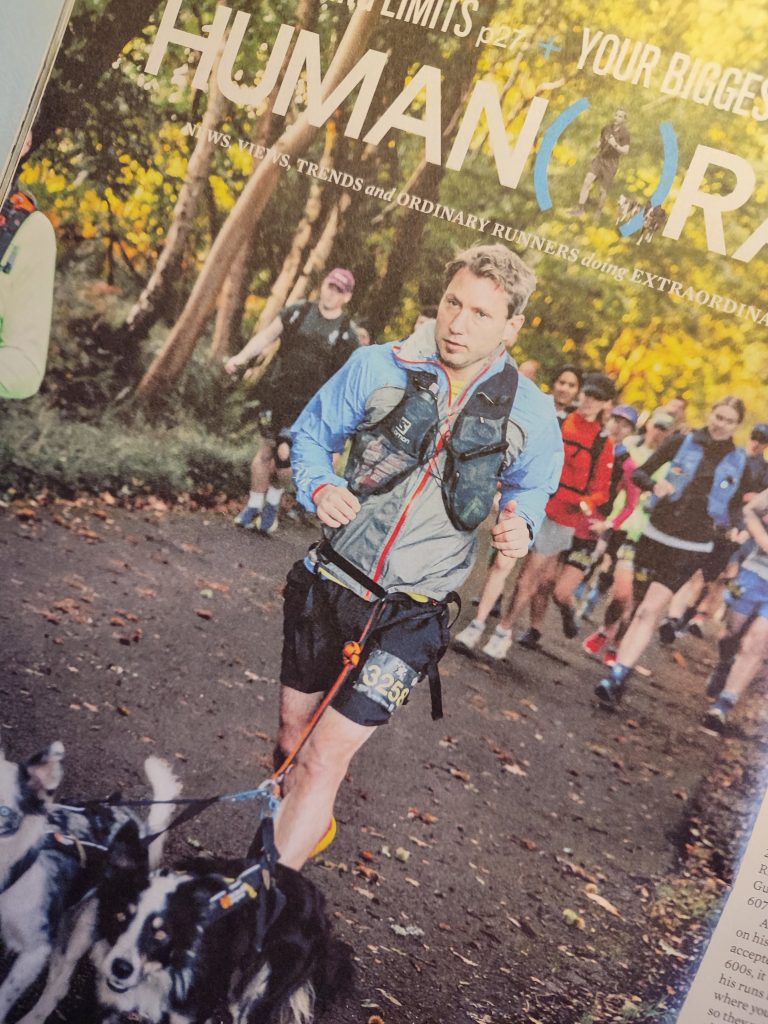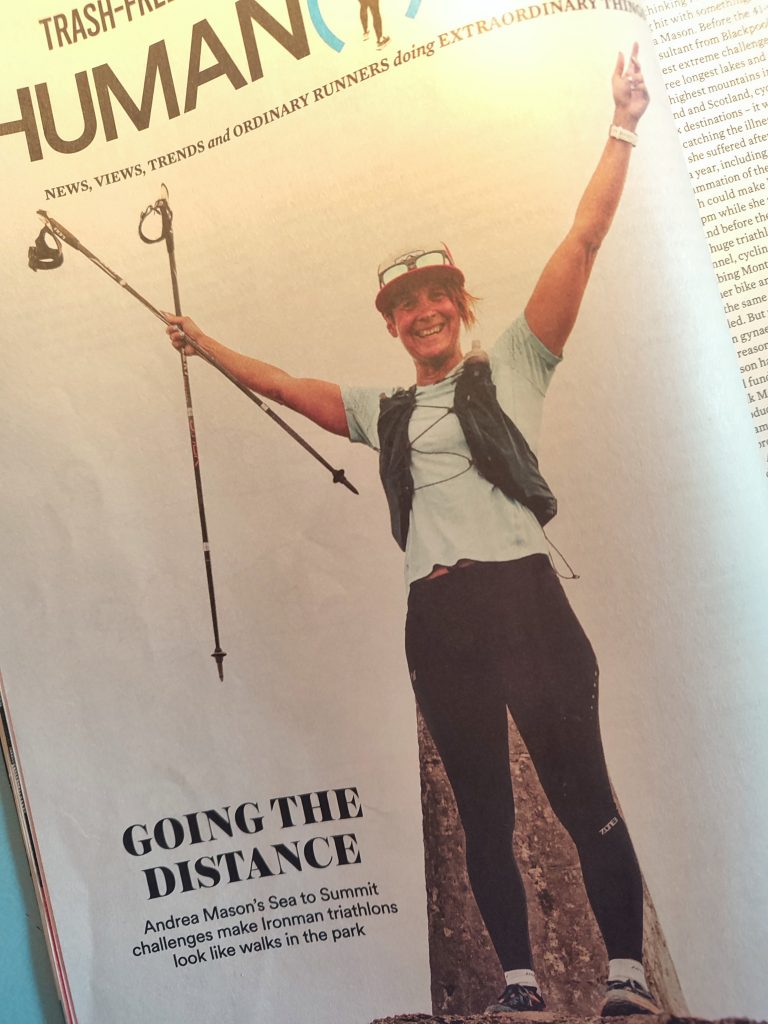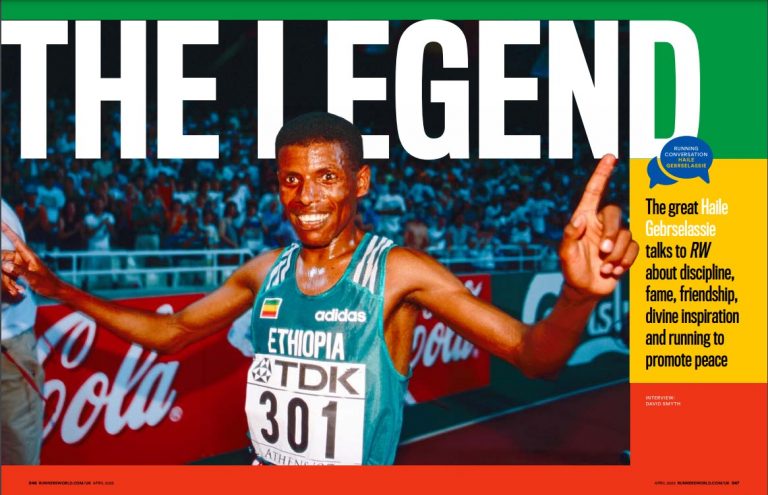FRANKIE TINSLEY – Talisman Triathlon – Men’s Fitness mag, 8 Oct 2021
Frankie Tinsley picks up his phone, turns his camera around and shows me the sickening view from his balcony. It’s a bucolic alpine scene straight out of Heidi, a skip and a jump from the Austrian border in the German town of Sonthofen in the Bavarian Alps. Up here he’s at the pinnacle of his career, he says, though if you were sent to visit him in these postcard-worthy surroundings, he wouldn’t show you a particularly nice time.
The former Royal Marines Commando from Cumbria, 40, now runs an Adventurous Training centre out there for military personnel, specialising in resilience training. “We’ll take people out and expose them in different environments. Discussing their experiences afterwards hopefully gives them an insight into what they’re like in certain situations, and gives them tools they can utilise to help them to cope,” he explains.
Naturally, he practises what he preaches. “I’m more comfortable when I’ve got a bit of hardship in my life,” he says. “I like to call it healthy suffering.” Five years ago he went to the Mojave Desert to compete in the World’s Toughest Mudder, ending up smooshed against his three team mates inside a two-man tent enduring a freezing night time sandstorm.
In August 2021, he accomplished something much bigger: a 16-day self-devised triathlon covering the length of the UK from Land’s End to John o’ Groats, incorporating swims of the longest lakes in Wales, England and Scotland (Bala, Windermere and Loch Awe respectively), runs up and down the three highest peaks (Snowdon, Scafell Pike and Ben Nevis) and mammoth cycles in between. He cycled over 1,400km, ran around 190km and swam a total of 60km, at the time of writing raising about £26,000 for the mental health charity CALM.
CALM, which stands for Campaign Against Living Miserably, has a focus on preventing male suicide – the issue that moved Tinsley to take on his challenge. Before taking his current job he was a PT instructor with the RAF. At the start of 2016 he was discussing with a fellow instructor, Andrew Shepherd, the idea of a canoe/cycle/run across England, Scotland and Wales as a leadership exercise for officer cadets. Four months later he received a call notifying him that Shepherd had taken his own life. The following January another of his friends and colleagues, Andrew Morris, also died by suicide.
“This challenge was the last thing that Andy Shepherd and I had talked about, so I really felt I should do something to raise awareness around this,” says Tinsley. “I think in life, we all have a responsibility to be role models. What I’ve learned through my age and my experience and my profession is that showing resilience is an opportunity to inspire people. I wanted to demonstrate the things that we can do, and show people that when things are hard, you do have an option to do something positive.”
He also wanted another “oh s***” moment in his life, so decided that crossing the lakes in his familiar kayak wouldn’t be taxing enough. He had never done a formal triathlon, but felt that the epic one he was developing should include swimming – definitely not his comfort zone. “On my physical training instructor course, I was the weakest swimmer by far. We had Friday afternoon sessions, and everything you did wrong added up to extra lengths in the pool as a punishment. I’d be the last out the door by a good half hour.” However, this challenge wasn’t complete self-flagellation. His decision to travel south to north was, in a manner of speaking, the easy option, given that the prevailing wind would be southwesterly.
The triathlon was first scheduled for August 2020, looking viable during the relaxing of Covid restrictions, when, three weeks before, disaster! Doubled over in pain, Tinsley managed to drive himself to hospital to learn that he had a ruptured appendix. Aftereffects of the emergency operation left him with a weakened pelvic floor and in danger of prolapsing.
A year on, he was finally in Cornwall, logistics in place including two camper vans, a list of youth hostels ready to be booked as long as the schedule was going to plan, and a support crew led by his brother. Louis Tinsley is a former UK Special Forces operator and the co-founder of the outdoor clothing brand ThruDark. Along the top tube of his bike Frankie had printed his mantra: “Strong in body, strong in mind,” which he turned into a rhyme in his head by adding: “Strongest man you’ll ever find.” He said it to himself endlessly along the way. “I’d repeat it and repeat it until my attitude changed,” he says. “Then I’d get future-focused.”
In terms of physical training to get to that point, he talks about having a “lifetime of general physical preparedness”, from representing his county at rugby, athletics and cross country as a schoolboy, to service in the Marines that included the 2003 invasion of Iraq, to his time as a PT instructor. In the run-up to the actual event, he was working on both endurance and strength, trying to build a lot of time on his feet into his day job, including ski touring, and as a CrossFit enthusiast, doing strength training in the evenings. He worked on his efficiency, following the Pose Method for running technique, and doing resistance-to-rotation exercises that would help him to move with as much economy as possible and prevent his body from breaking down on the long days. He also built a small pool in his garden so he could swim on a leash.
But as the mantra says, mental strength is just as important. “I made a conscious decision all the way back in December that I was only going to stop on this event if I had a catastrophic injury, or if I physically did not have the energy to take one more step forward,” he says. “It made the journey easier because I was never going, ‘Oh, I want to stop, I want to think of an excuse,’ because I’d already removed my excuses.”
Along the way, the scale of the thing he was attempting became much more apparent. There were multiple lows – he rode his bike into a ditch at one point, scaled Snowdon in 70mph winds, and says that the overall feeling of cycling that kind of distance is like “your arse has been kicked by a horse.” There were also wonderful highs on a route that he had tailored to show the best of Britain’s landscapes rather than its most efficient A-roads. He ran along the narrow Scottish track made famous in the Bond film Skyfall, and was treated to a flypast from his colleagues in the RAF while he swam Windermere.
And of course there were emotional moments. He visited Andrew Morris’s memorial bench in Falmouth on the first day of the journey, and met with Andrew Shepherd’s wife and daughter when he passed through Fort William. “It’s said that 250 people are affected by every suicide,” he says. “I feel like the more you can be acountable and take ownership of your own life, the more you can start accepting and learning and dealing with things. Andy and Andy were accountable to their families and they made a bad decision, in my opinion. I’m not angry at them for doing it. I just wish they hadn’t.”
What did he learn about himself from his experience? “In dark times you will learn so much more about your own psyche and thought processes then you ever will reading a self-help book. You can choose to feel sorry for yourself, but it won’t affect the pain, so don’t do it. And like that R.E.M. song says, everybody does hurt sometimes, psychologically, physically, but if you keep going, you’ll achieve great things. I’ve got a world first now – no one has done this before – and it came with suffering. I’m not going to put a mask of positivity on it. It hurt.”
As we bid goodbye, he’s about to embark on a much bigger adventure: the birth of his first child, a son, who arrived in mid-September. He expects others to attempt what he’s calling the Talisman Triathlon now that he’s proved it can be done. “I want it to become a real pilgrimage into the UK,” he says. And if you don’t fancy all that time in a wetsuit, you can simply experience it as the grand metaphor it is: “I wanted it to relate to people’s lives. It is a journey, uncontrollable things are going to happen, and you never know what’s around the corner. It’s not something you do alone, either. I couldn’t have done this without other people making sacrifices to get me there. So when you’re struggling, trust that support will come.”
The CALM helpline is open 5pm-midnight 365 days a year on 0800 58 58 58, as is their webchat at thecalmzone.net/help/webchat





